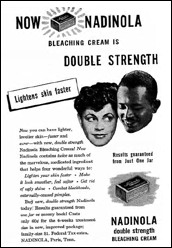Several months ago, I interviewed for a job. Even though the interview was for a mere entry-level position, I completed the necessary preparatory tasks in effort to make a good first impression. I got a new suit, heels, and hair.
Yes hair; the long straight hair that my sisters of Prince George’s County seem to love so much.
I have worn my natural hair for over 12 years now, sporting various styles from two-strand twists and cornrows, to locks and a kinky ‘fro. But I am no stranger to hiding my naturally kinky hair when looking for a job. It seems to be a prerequisite when seeking employment, or at least it is for me.
I did the same thing after finishing undergrad many years ago. At that time I got extensions or what is better known as a weave. This time around I opted for something different—a wig. My mother practically insisted that I wear one. And that I did. She even helped me pick the “right” style and paid for the trickery. She told me when she interviewed for a job fresh out of high school more than 40 years ago, she wore straight hair and then switched it up to the afro after she was hired. Of course that was the 1960s and one would think that society would have evolved and what not by now, but such is not the case. The term “good hair” is alive and well.
The night before my interview, I tried the wig on and showed it to my father. He responded, “That’s too white!” Um, well isn’t that the point?
I’ve been on the job now for more than five months, and I still rock the hairpiece. I’ve been told by friends and coworkers that I should lose the wig and wear my true hair (now in a kinky ‘fro style) for all my coworkers to see. They say it shouldn’t matter and that black folks are the ones with the hair issues. The whites won’t care; they’ll think it’s cool. Hmm … I’m not too sure about all that.
The bottom-line is, all the people in charge at my job are white. And the women in power are white with long stringy blond hair (both dyed and natural). Hell, I interviewed with four of them.
And all of the black women there, wear their hair straight/relaxed or with extensions. I’ve seen a couple with braids and twists, but they’re temporary employees unlike myself. The black women in permanent positions all sport straight hair, whether it’s permed or pressed. I refuse to be the sacrificial lamb.
My mom (a former human resources professional) has observed first-hand a black woman with natural hair unable to advance. Granted one can’t conclusively say her hair was the reason she did not receive a promotion, but all factors must be considered. According to my mother, her black female colleagues with a comparable knowledge base were able to move on up the food chain.
At this stage in my life, it’s about progression; and I’m not going to let my desire not to relax my hair potentially stand in the way of that. Perhaps in several months I’ll decide to risk it. But for right now, I’ll wig it to work.



 Shocking!
Shocking!

Recent Comments